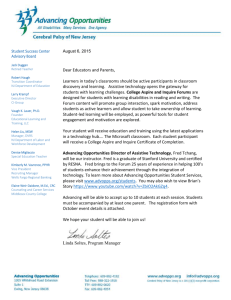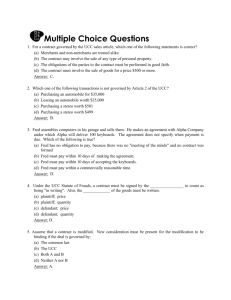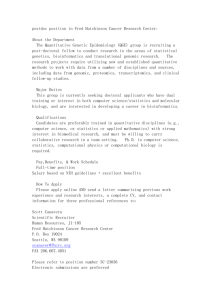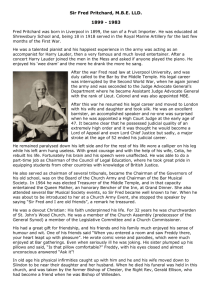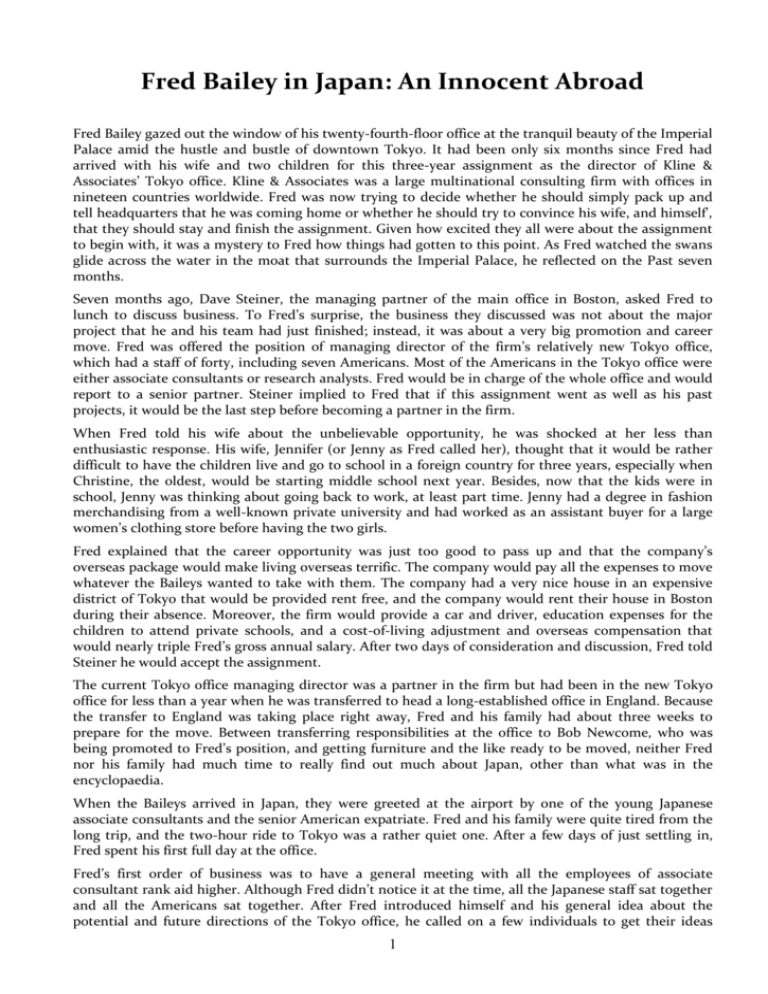
Fred Bailey in Japan: An Innocent Abroad
Fred Bailey gazed out the window of his twenty-fourth-floor office at the tranquil beauty of the Imperial
Palace amid the hustle and bustle of downtown Tokyo. It had been only six months since Fred had
arrived with his wife and two children for this three-year assignment as the director of Kline &
Associates’ Tokyo office. Kline & Associates was a large multinational consulting firm with offices in
nineteen countries worldwide. Fred was now trying to decide whether he should simply pack up and
tell headquarters that he was coming home or whether he should try to convince his wife, and himself',
that they should stay and finish the assignment. Given how excited they all were about the assignment
to begin with, it was a mystery to Fred how things had gotten to this point. As Fred watched the swans
glide across the water in the moat that surrounds the Imperial Palace, he reflected on the Past seven
months.
Seven months ago, Dave Steiner, the managing partner of the main office in Boston, asked Fred to
lunch to discuss business. To Fred’s surprise, the business they discussed was not about the major
project that he and his team had just finished; instead, it was about a very big promotion and career
move. Fred was offered the position of managing director of the firm’s relatively new Tokyo office,
which had a staff of forty, including seven Americans. Most of the Americans in the Tokyo office were
either associate consultants or research analysts. Fred would be in charge of the whole office and would
report to a senior partner. Steiner implied to Fred that if this assignment went as well as his past
projects, it would be the last step before becoming a partner in the firm.
When Fred told his wife about the unbelievable opportunity, he was shocked at her less than
enthusiastic response. His wife, Jennifer (or Jenny as Fred called her), thought that it would be rather
difficult to have the children live and go to school in a foreign country for three years, especially when
Christine, the oldest, would be starting middle school next year. Besides, now that the kids were in
school, Jenny was thinking about going back to work, at least part time. Jenny had a degree in fashion
merchandising from a well-known private university and had worked as an assistant buyer for a large
women’s clothing store before having the two girls.
Fred explained that the career opportunity was just too good to pass up and that the company’s
overseas package would make living overseas terrific. The company would pay all the expenses to move
whatever the Baileys wanted to take with them. The company had a very nice house in an expensive
district of Tokyo that would be provided rent free, and the company would rent their house in Boston
during their absence. Moreover, the firm would provide a car and driver, education expenses for the
children to attend private schools, and a cost-of-living adjustment and overseas compensation that
would nearly triple Fred’s gross annual salary. After two days of consideration and discussion, Fred told
Steiner he would accept the assignment.
The current Tokyo office managing director was a partner in the firm but had been in the new Tokyo
office for less than a year when he was transferred to head a long-established office in England. Because
the transfer to England was taking place right away, Fred and his family had about three weeks to
prepare for the move. Between transferring responsibilities at the office to Bob Newcome, who was
being promoted to Fred’s position, and getting furniture and the like ready to be moved, neither Fred
nor his family had much time to really find out much about Japan, other than what was in the
encyclopaedia.
When the Baileys arrived in Japan, they were greeted at the airport by one of the young Japanese
associate consultants and the senior American expatriate. Fred and his family were quite tired from the
long trip, and the two-hour ride to Tokyo was a rather quiet one. After a few days of just settling in,
Fred spent his first full day at the office.
Fred’s first order of business was to have a general meeting with all the employees of associate
consultant rank aid higher. Although Fred didn’t notice it at the time, all the Japanese staff sat together
and all the Americans sat together. After Fred introduced himself and his general idea about the
potential and future directions of the Tokyo office, he called on a few individuals to get their ideas
1
about how the things for which they were responsible would likely fit into his overall plan. From the
Americans, Fred got a mixture of opinions with specific reasons about why certain things might or
might not fit well. From the Japanese, he got very vague answers. When Fred pushed to get more
specific information, he was surprised to find that a couple of the Japanese simply made a whistling
sound as they breathed and said that it was “difficult to say”. Fred sensed the meeting was not achieving
his objectives, so he thanked everyone for coming and said he looked forward to their all working
together to make the Tokyo office the fastest-growing office in the company.
After they had been in Japan about a month, Fred’s wife complained to him about the difficulty she had
getting certain everyday products like maple syrup, peanut butter, and good-quality beef. She said that
when she could get it at one of the specialty stores it cost three and four times what it would cost in the
States. She also complained that since the washer and dryer were much too small, she had to spend
extra money by sending things out to be dry-cleaned. On top of all that, unless she went to the
American Club in downtown Tokyo, she never had anyone to talk to. After all, Fred was gone ten to
sixteen hours a day. Unfortunately, while Jenny talked, Fred was preoccupied, thinking about a big
upcoming meeting between his firm and a significant prospective client, a top-100 Japanese
multinational company.
The next day, Fred, along with the lead U.S. consultant for the potential contract, Ralph Webster, and
one of the Japanese associate consultants, Kenichi Kurokawa, who spoke perfect English, met with a
team from the Japanese firm. The Japanese team consisted of four members: the vice-president of
administration, the director of international personnel, and two staff specialists. After shaking hands
and a few awkward bows, Fred said that he knew the Japanese gentlemen were busy and he didn’t want
to waste their time, so he would get right to the point. Fred then had the other American lay out their
firm’s proposal for the project and what the project would cost. After the presentation, Fred asked the
Japanese what their reaction to the proposal was. The Japanese did not respond immediately, so Fred
launched into his summary version of the proposal, thinking that the translation might have been
insufficient. Again, the Japanese had only the vaguest of responses to his direct questions.
The recollection of the frustration of that meeting was enough to shake Fred back to reality. The reality
was that in the five months since that first meeting little progress had been made and the contract
between the firms was yet to be signed. “I can never seem to get a direct response from Japanese”, he
thought to himself. This feeling of frustration led him to remember a related incident that happened
about a month after this first meeting with this client.
Fred had decided that the reason not much progress was being made with the client was that he and his
group just didn’t know enough about the client to package the proposal in a way that was appealing to
the client. Consequently, he called in Ralph Webster, the senior American associated with the proposal,
and asked him to develop a report on the client so that the proposal could be re-evaluated and changed
where necessary. Jointly, they decided that one of the more promising Japanese research associates,
Tashiro Watanabe, would be the best person to take the lead on this report. To impress upon Tashiro
the importance of this task and the great potential they saw in him, they decided to have the young
Japanese associate meet with both Fred and Ralph. In the meeting, Fred and Ralph laid out the nature
and importance of the task, at which point Fred leaned forward in his chair and said to Tashiro, “You
can see that this is an important assignment and that we are placing a lot of confidence in you by giving
it to you. We need the report by this time next week so that we can revise and represent our proposal.
Can you do it?” After a somewhat pregnant pause, Tashiro responded hesitantly, “I’m not sure what to
say.” At that point, Fred smiled, got up from his chair, walked over to the young Japanese associate,
extended his hand, and said, “Hey, there’s nothing to say. We’re just giving you the opportunity you
deserve”.
The day before the report was due, Fred asked Ralph how the report was coming. Ralph said that, since
he had heard nothing from Tashiro, he assumed everything was under control but that he would
double-check. Ralph later ran into one of the U.S. research associates, John Maynard. Ralph knew that
John was hired for Japan because of his Japanese language ability and that, unlike any of the other
Americans, John often went out after work with some of the Japanese research associates, including
Tashiro. So Ralph asked John if he knew how Tashiro was coming on the report. John then recounted
2
that at the office the previous night Tashiro had asked if Americans sometimes fired employees for
being late with reports. John had sensed that this was more than a hypothetical question and asked
Tashiro why he wanted to know. Tashiro did not respond immediately, and since it was 8:30 in the
evening, John suggested they go out for a drink. At first Tashiro resisted, but then John assured him
that they would grab a drink at a nearby bar and come right back. At the bar, John got Tashiro to open
up.
Tashiro explained the nature of the report that he had been requested to produce. He continued to
explain that, even though he had worked long into the night every night to complete the report, it was
just impossible and that he had doubted from the beginning whether he could complete the report in a
week.
At this point, Ralph asked John, “Why didn’t he say something in the first place?” Ralph didn’t wait to
hear whether or not John had an answer to this question. He headed straight to Tashiro’s desk.
Ralph chewed out Tashiro and then went to Fred, explaining that the report would not be ready and
that Tashiro, from the start, didn’t think it could be. “Then why didn’t he say something?” Fred asked.
No one had any answers, and the whole episode left everyone more suspect and uncomfortable with
each other.
Other incidents, big and small, had made the last two months especially frustrating, but Fred was too
tired to remember them all. To Fred it seemed that working with Japanese both inside and outside the
firm was like working with people from another planet. Fred felt he couldn’t communicate with them,
and he never could figure out what they were thinking. It drove him crazy.
On top of all this, Jennifer laid a bombshell on him. She wanted to go home, and yesterday was not
soon enough. Even though the kids seemed to be doing all right, Jennifer was tired of Japan – tired of
begin stared at, of not understanding anybody or being understood, of not being able to find what she
wanted at the store, of not being able to drive and read the road signs, of not having anything to watch
on television, of not being involved in anything. She wanted to go home and could not think of any
reason why they shouldn’t. After all, she reasoned, they owed nothing to the company because the
company had led them to believe this was just another assignment, like the two years they spent in San
Francisco, and it was anything but that!
Fred looked out the window once more, wishing that somehow everything could be fixed, or turned
back, or something. The traffic below was backed up. Though the traffic lights changed, the cars and
trucks didn’t seem to be moving. Fortunately, beneath the ground, one of the world’s most advanced,
efficient, and clean subway systems moved hundreds of thousands of people about the city and to their
homes.
Source: J. Stewart Black, in International Human Resource Management, eds. M. Mendenhall and Gary Oddou (Boston: PWSKent, 1991).
Deresky, H., International Management: Managing Across Borders and Cultures, 5th Edition, Pearson/Prentice Hall, Upper
Saddle River, 2006, pp. 375-377.
3


